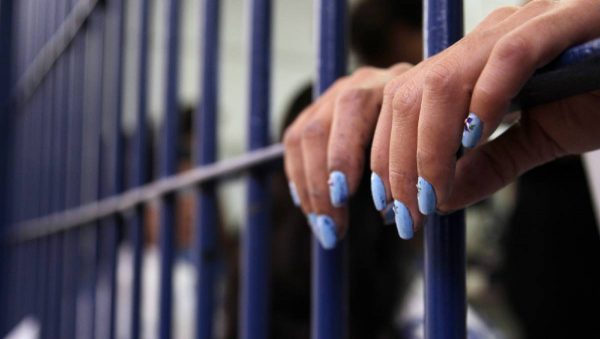Keeda Haynes had spent a few nights in Alderson, W. Va., when it really hit her.
“I am in fucking federal prison.”
Just weeks earlier, in December 2002, she had graduated from Tennessee State University, where she’d studied criminal justice and psychology. She’d hardly taken off her cap and gown before she was in a car with her parents making the 450-mile drive from Nashville to Alderson, through mountains and snow. They’d dropped her off with her glasses and her Bible to start serving her sentence.
In the federal system, prison terms are measured in months, which can obscure the amount of time they really represent — the same way describing a child as “22 months old” can shield parents from the reality that they nearly have a 2-year-old. When Haynes was standing in a Nashville courtroom listening as a federal judge sentenced her to 84 months in prison, the surreal nature of the moment made the math fuzzy. The fact that she was being sent away for seven years would take some time to land with full force.
“It was just so unreal, like it was happening to somebody else,” Haynes says. “You never in a million years think that this is something that would be happening to you.”
But it was happening to her. And that fact would begin to close in on her as she and her parents drove through the gates of the Federal Prison Camp, Alderson in the small hours of the winter morning; as she sat in a holding room with two other women, one of them sobbing, as they waited around five hours for the intake staff to arrive for the day; and as she was given a khaki uniform and a number — 00017011 — that she easily recites by heart to this day.
Almost 163 months — or 14 years — later, Haynes is sitting in her office on the 20th floor of the austere downtown tower that houses the Metro Public Defender’s Office. She occasionally glances over at her computer screen with a click of the mouse or two, as she talks through a story that clearly still lives just beneath her skin. On her desk are five or six stacks of paper, each one likely representing a life or lives that are now intersecting with a criminal justice system that consumes more bodies than any such system in any other nation on earth.
Keeda Haynes knows all about that, and it’s a good thing, too — she’s their lawyer.
The way this story about Keeda Haynes ends is remarkable: a Nashville woman, caught up in a drug conspiracy, ensnared by mandatory minimum sentences, leaves prison and pursues a law career defending the people at the bottom of society in danger of being swallowed up by an unfeeling system. But the thing that stands out about how the story begins is how unremarkable it is, and how it shows — at least in her telling — the way an ordinary person, with a family and goals and potential, can be slowly pulled into that system.
As Haynes remembers it, she (continue reading at Nashville Scene)
